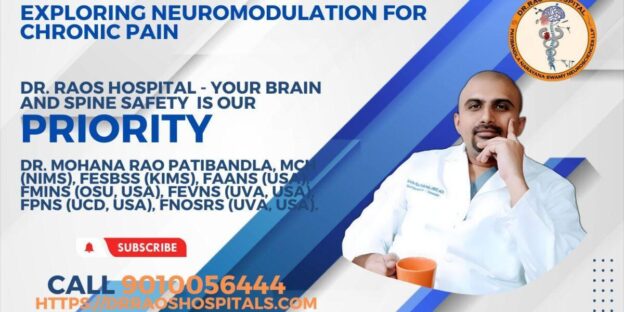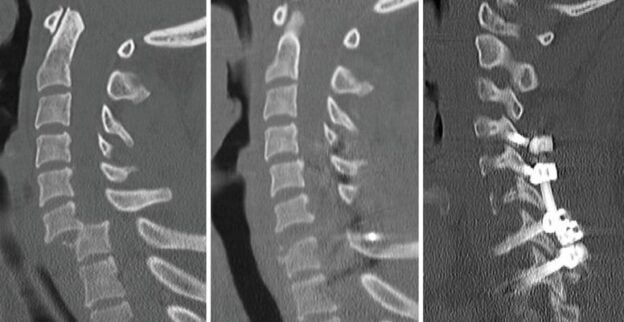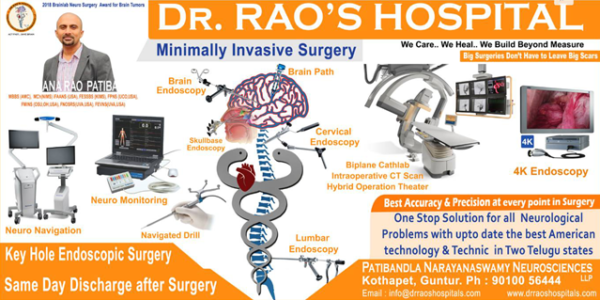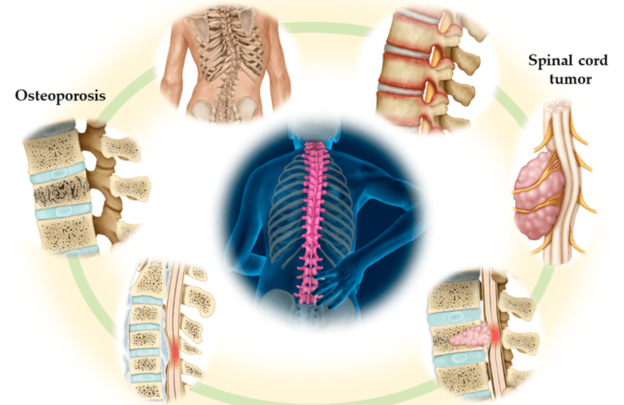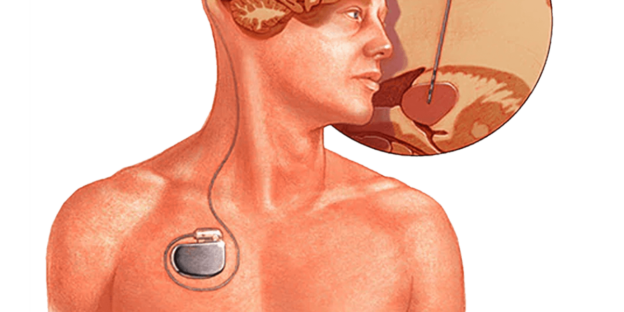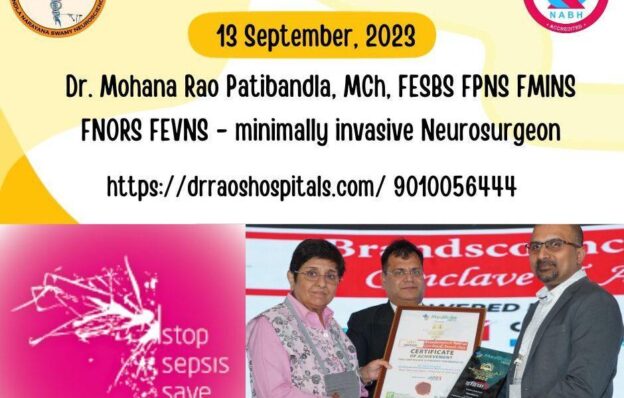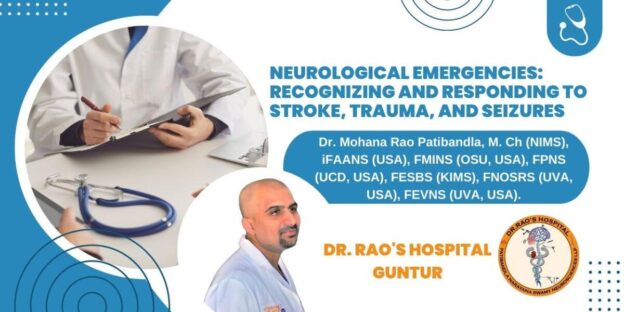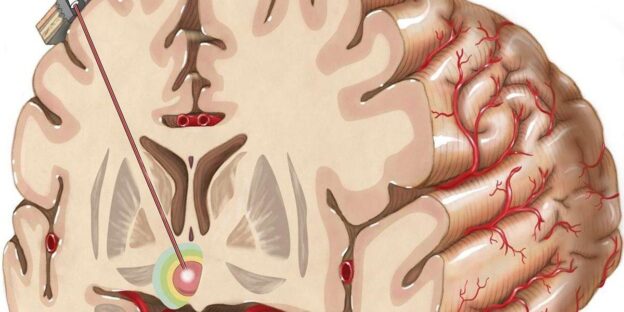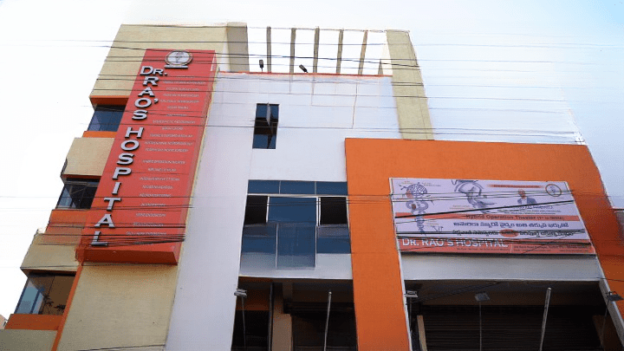“Discover how Dr. Rao’s Hospital in Guntur, India, utilizes cutting-edge neurosurgical techniques to improve outcomes for critical brain and spinal injuries. Explore the advancements in trauma care and the expertise of Dr. Rao, the best neurosurgeon in India.”
Introduction
Traumatic brain and spinal injuries can have devastating consequences, impacting a person’s physical, cognitive, and emotional well-being. In recent years, significant advancements in neurosurgical techniques and technologies have revolutionized the management of trauma cases. Dr. Rao’s Hospital in Guntur, India, stands at the forefront of neurotrauma care, offering patients state-of-the-art treatments and comprehensive care. Led by Dr. Rao, the best neurosurgeon in India, the hospital combines expertise, cutting-edge technology, and a multidisciplinary approach to achieve optimal outcomes for individuals with critical brain and spinal injuries.
Understanding Traumatic Brain and Spinal Injuries
Traumatic brain injuries (TBIs) occur when external forces cause damage to the brain tissue. They can result from various incidents, such as falls, motor vehicle accidents, or sports-related accidents. On the other hand, spinal injuries involve damage to the spinal cord, leading to impaired motor and sensory function. Both conditions require prompt and specialized neurosurgical intervention to prevent further damage and enhance the chances of recovery.
Neurosurgical Advances in Trauma Care
Dr. Rao’s Hospital, renowned for its expertise in neurotrauma care, utilizes cutting-edge technologies and techniques to provide the best possible treatment for patients with critical brain and spinal injuries. These advancements have significantly improved outcomes, including:
Minimally invasive neurosurgery
Minimally invasive neurosurgery has revolutionized the field of neurotrauma by offering a less invasive approach to treating critical brain and spinal injuries. This advanced surgical technique utilizes smaller incisions, specialized instruments, and advanced imaging technology to minimize tissue damage, reduce complications, and expedite patient recovery. In neurotrauma cases, minimally invasive neurosurgery significantly addresses traumatic brain and spinal injuries while minimizing the disruption of healthy tissues. This approach offers several advantages over traditional open surgery, including reduced postoperative pain, shorter hospital stays, faster recovery times, and improved cosmetic outcomes. One of the critical aspects of minimally invasive neurosurgery in neurotrauma is the use of advanced imaging techniques such as CT scans, MRIs, or fluoroscopy. These imaging modalities provide real-time visualization of the injured area, allowing the surgeon to locate the trauma and plan the surgical intervention precisely. This imaging guidance ensures accurate placement of surgical instruments and minimizes the risk of damaging healthy surrounding structures. During the surgical procedure, specialized instruments are utilized to access the injured site through small incisions. These instruments may include endoscopes, microscopes, or robotic-assisted tools, enabling surgeons to navigate delicate structures with enhanced precision. Minimally invasive techniques can be employed for a range of neurotrauma procedures, including hematoma evacuation, brain or spinal cord injury decompression, and the repair of skull fractures. The benefits of minimally invasive neurosurgery in neurotrauma are significant. Minimizing tissue disruption and trauma reduces the risk of complications such as infections, excessive bleeding, and postoperative scarring. Patients experience less pain and discomfort, resulting in faster recovery and earlier return to normal activities. Dr. Rao’s Hospital, renowned as the best neurosurgery center in India, is at the forefront of performing minimally invasive neurosurgical procedures for neurotrauma cases. The hospital uses cutting-edge methods and cutting-edge technology to give patients with severe brain and spinal injuries the best care possible under the direction of Dr. Rao, the top neurosurgeon in India. In conclusion, minimally invasive neurosurgery has transformed the field of neurotrauma by offering a less invasive and highly effective approach to treating critical brain and spinal injuries. Through advanced imaging guidance and specialized instruments, this technique reduces tissue damage, improves patient outcomes, and accelerates recovery. With its expertise in minimally invasive neurosurgery, Dr. Rao’s Hospital ensures that patients receive the best possible care, making it a premier destination for individuals seeking advanced neurotrauma treatment.
Image-guided surgery
Image-guided surgery has revolutionized the field of neurotrauma by providing neurosurgeons with real-time, precise navigation during surgical procedures. This advanced technology combines the power of imaging techniques with surgical instruments, enabling surgeons to target and treat traumatic brain and spinal injuries accurately. In neurotrauma cases, image-guided surgery allows for precise localization and visualization of the injury site, helping the surgeon plan and execute surgical interventions with enhanced accuracy. The process typically involves three key components: imaging, registration, and navigation. Imaging plays a vital role in image-guided surgery for neurotrauma. Various imaging modalities, such as computed tomography (CT), magnetic resonance imaging (MRI), and angiography, capture detailed images of the injured area. These images provide valuable information about the trauma’s location, extent, and nature, helping the surgeon understand the injury better. The next step is registration, which involves aligning the patient’s preoperative images with their actual anatomy during surgery. This is achieved using fiducial markers or surface landmarks to establish a coordinate system. The registered images are then integrated into a computer workstation, allowing the surgeon to visualize the patient’s anatomy in real time during the procedure. Once the registration is complete, the navigation component comes into play. The surgeon uses a tracking system that monitors the position and movements of surgical instruments in the patient’s anatomy. This information is displayed on a navigation system, providing a virtual map of the patient’s anatomy and the precise location of the surgical instruments in real time. During neurotrauma surgeries, image-guided navigation assists the surgeon in various ways. It helps locate and access the injury site precisely, ensuring minimal damage to healthy surrounding tissues. The surgeon can visualize critical structures, such as blood vessels or eloquent brain areas, to avoid complications during the procedure. Furthermore, image-guided navigation enables the surgeon to accurately place implants or perform complex reconstructive procedures with improved precision. The benefits of image-guided surgery in neurotrauma are numerous. It enhances surgical accuracy, reduces the risk of complications, and improves patient outcomes. By allowing surgeons to navigate through intricate anatomical structures, image-guided surgery minimizes the invasiveness of procedures, resulting in shorter operating times, reduced blood loss, and a faster recovery. Dr. Rao’s Hospital, a leading neurosurgery center in India, embraces the use of image-guided surgery to manage neurotrauma cases. With advanced imaging technology, state-of-the-art navigation systems, and the expertise of Dr. Rao, the best neurosurgeon in India, the hospital offers cutting-edge solutions for patients with traumatic brain and spinal injuries. In conclusion, image-guided surgery has significantly advanced the field of neurotrauma by providing surgeons with real-time, accurate navigation during surgical procedures. It enhances surgical precision, reduces complications, and ultimately improves patient outcomes. With its commitment to incorporating innovative technologies, Dr. Rao’s Hospital ensures that patients receive the best neurosurgical care, making it a premier destination for individuals seeking effective treatment for neurotrauma.
Neurocritical Care
Neurocritical care plays a crucial role in managing trauma-related brain and spinal injuries. The neurocritical care team at Dr. Rao’s Hospital is dedicated to providing specialized care for patients with severe traumatic brain injury (TBI) and spinal cord injury (SCI). These injuries can have devastating consequences and require immediate and intensive attention. In the case of traumatic brain injury, neurocritical care involves closely monitoring the patient’s neurological status, intracranial pressure, and cerebral blood flow. Advanced monitoring techniques, such as intracranial pressure monitoring and continuous electroencephalography (EEG), help the medical team assess the patient’s condition and guide treatment decisions. The team also ensures optimal oxygenation and ventilation to support brain function. For spinal cord injuries, neurocritical care focuses on preventing further damage and promoting recovery. This includes maintaining spinal alignment, managing spinal cord edema, and preventing complications like pressure sores and infections. The team works closely with physical, occupational, and rehabilitation specialists to develop a comprehensive treatment plan that maximizes the patient’s functional recovery. Dr. Rao’s Hospital has state-of-the-art facilities and cutting-edge technologies to provide advanced neurocritical care. The hospital has dedicated neurointensive care units staffed by highly skilled physicians, nurses, and critical care specialists. This multidisciplinary team collaborates to deliver personalized care and optimize outcomes for patients with traumatic brain and spinal injuries. In addition to the immediate management of trauma-related injuries, neurocritical care also focuses on preventing secondary complications and promoting long-term recovery. The team monitors and manages factors such as infection, fluid balance, blood pressure, and nutrition to create an optimal healing environment for the injured brain and spinal cord. The neurocritical care team at Dr. Rao’s Hospital is committed to providing compassionate care and ensuring the best possible outcomes for patients with traumatic brain and spinal injuries. Their expertise in neurosurgical interventions and comprehensive critical care management helps optimize recovery and improve the quality of life for patients and their families. Dr. Rao’s Hospital is a leader in neurocritical care for trauma patients by integrating advanced neurosurgical techniques, cutting-edge technology, and specialized expertise. The hospital’s commitment to excellence and innovation makes it the top choice for individuals seeking the best neurotrauma care in India.
Rehabilitation and neurorehabilitation
Rehabilitation and neurorehabilitation play a crucial role in the comprehensive care and recovery of individuals who have experienced neurotrauma. These specialized programs aim to optimize physical, cognitive, and emotional functioning, promote independence, and enhance patients’ overall quality of life. Neurotrauma can result in various impairments and disabilities, including motor deficits, sensory loss, cognitive challenges, and emotional disturbances. Rehabilitation addresses these specific needs through a multidisciplinary approach involving a team of healthcare professionals, including physiatrists, physical therapists, occupational therapists, speech therapists, psychologists, and social workers. The rehabilitation process begins soon after the acute phase of neurotrauma, once the patient’s condition has stabilized. The specific rehabilitation plan is tailored to the individual’s unique needs and goals, considering the severity of the injury, the affected areas, and the patient’s overall health. The primary objectives of rehabilitation in neurotrauma include
Physical Rehabilitation
Physical therapy aims to improve mobility, strength, balance, and coordination. Therapists employ various techniques, exercises, and assistive devices to help patients regain motor skills, increase their range of motion, and restore functional independence.
Cognitive Rehabilitation
Neurotrauma can affect cognitive abilities, including memory, attention, problem-solving, and language. Cognitive rehabilitation programs use specialized techniques and exercises to improve cognitive function, enhance attention and memory skills, and promote overall cognitive well-being.
Speech and Language
For patients who experience difficulties in speech and language following neurotrauma, speech therapy focuses on improving communication skills, articulation, voice control, and swallowing abilities.
Psychosocial Support
Neurotrauma can significantly impact emotional well-being, leading to anxiety, depression, and other psychological challenges. Psychologists and social workers provide counseling, support, and coping strategies to help patients and their families navigate the emotional aspects of recovery.
Functional Independence Training
Rehabilitation programs also focus on improving daily living activities and functional independence. This includes self-care, mobility, and community integration training to help patients regain independence and reintegrate into their daily lives. Neurorehabilitation is a long-term process that requires patience, dedication, and consistent effort from both the healthcare team and the patient. Setting realistic goals and milestones is essential, as progress may vary for each individual. The duration and intensity of rehabilitation depend on the severity of the neurotrauma and the progress made during the recovery process. Dr. Rao’s Hospital, recognized as the best neurosurgery center in India, provides comprehensive rehabilitation and neurorehabilitation services for patients with neurotrauma. A group of skilled healthcare professionals working under Dr. Rao’s direction closely collaborate with patients to create individualized rehabilitation programs that maximize recovery and enhance functional outcomes. In conclusion, rehabilitation and neurorehabilitation are essential components of the comprehensive care and recovery process for individuals with neurotrauma. These programs address patients’ specific physical, cognitive, and emotional needs, promoting functional independence and improving overall quality of life. Dr. Rao’s Hospital, with its expertise in neurotrauma rehabilitation, offers comprehensive and individualized programs to help patients regain their optimal level of functioning and reintegrate into their daily lives with confidence and independence.
The Role of Dr. Rao, the Best Neurosurgeon in India
Dr. Rao, a renowned neurosurgeon with extensive experience in neurotrauma care, leads the team at Dr. Rao’s Hospital. His expertise in intricate neurosurgical procedures and his compassionate approach to patient care have earned him recognition as the best neurosurgeon in India. Dr. Rao‘s commitment to staying at the forefront of medical advancements allows him to offer patients the latest and most effective treatment options.
Conclusion
Neurosurgical advances in trauma care have transformed how critical brain and spinal injuries are managed, offering new hope to patients and their families. Dr. Rao’s Hospital, recognized as the best neurotrauma hospital in India, combines expertise, state-of-the-art technology, and a patient-centered approach to deliver exceptional care. Under the leadership of Dr. Rao, the hospital continues to push boundaries and improve outcomes for individuals with traumatic brain and spinal injuries.
If you or a loved one has experienced a critical brain or spinal injury, seeking immediate medical attention from a specialized neurosurgical center like Dr. Rao’s Hospital can make a significant difference in the recovery journey.

